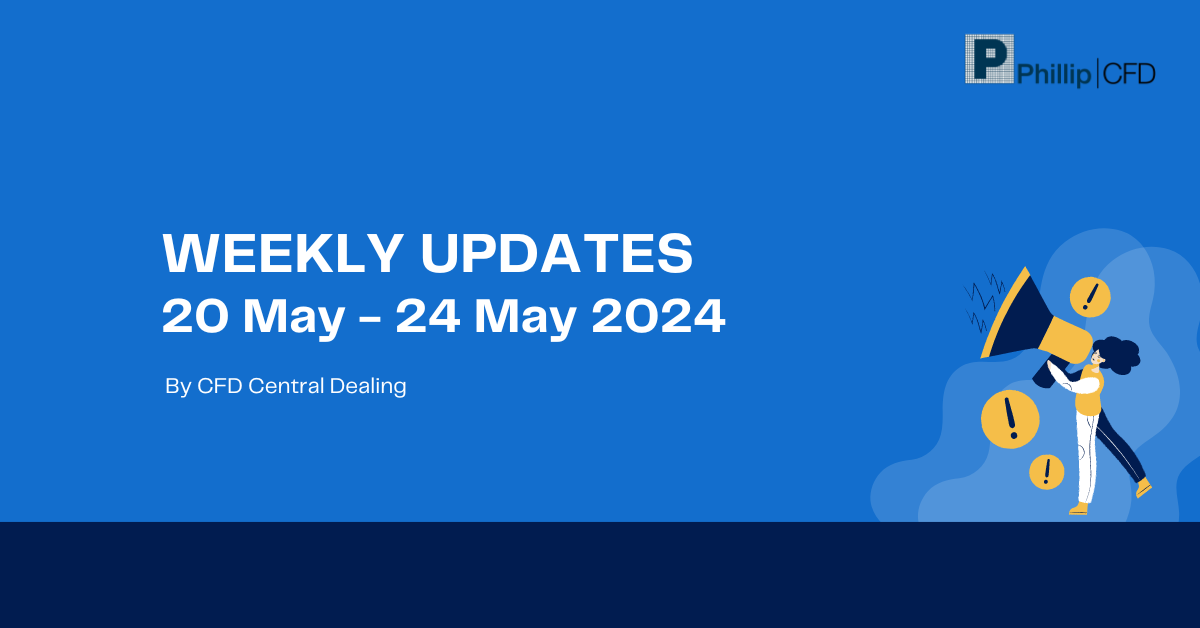Deficit interest
Table of Contents
Deficit interest
Deficit interest is a significant component of government finance, demonstrating the costs of borrowing to fund budget shortcomings. Debt financing presents challenges to long-term fiscal health and economic stability, even if it can be used as a tool for addressing pressing demands or boosting economic growth.
What is deficit interest?
When the nominal interest rate drops below zero, it results in deficit interest, commonly referred to as negative interest. The interest payments made by a government or an organisation when borrowing funds to cover deficits in its budget are referred to as deficit interest.
Budget deficits emerge when expenditures surpass revenues generated in a specified timeframe, mandating borrowing to compensate for the deficit. Bonds and other debt securities are issued, and they contain an interest rate that the borrowing organisation has to pay to its lenders.
Prudent fiscal policies, appropriate borrowing methods, and proactive steps to resolve underlying structural disparities in government budgets are necessary to effectively manage deficit interest.
Understanding deficit interest
The importance of deficit interest emerges from the fact that it represents the expense of financing deficits and adds to the national debt. It is crucial to comprehend deficit interest as it draws attention to the adverse financial effects of deficit spending, such as more excellent borrowing rates, possible credit rating downgrades, and rising debt levels. A significant deficit interest rate can burden the government’s finances, restrict future spending alternatives, and undermine economic stability.
Furthermore, the payment of deficit interest takes funds away from public services or profitable ventures, which could jeopardise social welfare and long-term economic progress. Effectively managing deficit interest is, therefore, essential to guarantee fiscal sustainability, uphold investor confidence, and preserve the economy’s general health.
Types of deficit interest
Budget deficit
When government expenditure surpasses its revenue, there is a budget deficit.
Trade deficits
Trade deficits occur when a nation’s imports are greater than its exports.
Current account deficit
A country has a current account deficit when its exports of transfers, products, and services are less than its imports.
Fiscal deficit
A fiscal deficit occurs when a government’s expenditures surpass its receipts.
Budgetary deficit
A budgetary deficit occurs when a person’s, company’s, or organisation’s expenditures surpass their income, necessitating borrowing.
Risks of deficit interest
The government’s finances and the overall economy are subject to risks from deficit interest in many ways. Some of them are:
- Debt burden
The government must eventually make more significant deficit interest payments as a result of continued deficit spending, which increases the debt levels. This could pressure government finances, restrict fiscal flexibility, and divert funds away from investments and necessary services.
- Fiscal mismanagement
Investors, credit rating firms, and policymakers become concerned about the government’s capacity to service its debt when high deficit interest payments are made since they indicate fiscal mismanagement. Lower investor confidence, increased borrowing costs, and credit rating downgrades may result from this.
- Hinder economic growth
Overpayment of deficit interest takes funds away from profitable investments, which could hinder the growth of the economy. Furthermore, growing public debt levels put long-term economic stability at risk by causing tax increases, decreases in public expenditure, and macroeconomic imbalances.
- Vulnerability
Interest rate fluctuations may substantially impact borrowing costs and worsen fiscal challenges for governments that have huge deficit interest payments.
Example of deficit interest
Let’s say that the United States government has a budget deficit of US$2 trillion due to increased expenditures on social programmes and infrastructure of US$7 trillion and only US$5 trillion in tax revenues.
Thus, the government issued treasury bonds with an average interest rate of 5% to cover this deficit. The accumulated deficit raises debt levels, eventually resulting in large deficit interest payments from the government.
Therefore, the government must pay US$ 10 billion (US$ 2 trillion x 5%) in deficit interest each year. Over time, these payments add up to the national debt. Increasing debt levels might result in future fiscal challenges, increased borrowing costs, and decreased investor confidence.
Frequently Asked Questions
The deficit interest is computed as Deficit sum x the interest rate on the funds borrowed.
For instance, if a government has a US$ 200 million deficit and borrowed funds at a 5% interest rate, the deficit interest can be calculated as follows:
US$ 200,000,000 (deficit) × 0.05 (interest rate) = US$ 10,000,000
This implies that the government would pay US$10 million in interest on the borrowed money used to close the deficit.
Governments may quickly fund their expenditures using deficit interest, preventing delays in important projects requiring urgent funding. Furthermore, deficit spending can promote economic growth by raising aggregate demand during recessions.
However, deficit interest may also result in higher levels of government debt, which could result in higher repayment obligations and interest charges down the road.
Furthermore, investors may become concerned about the fiscal sustainability of a high deficit interest rate, which might result in increased borrowing costs and unstable economic conditions.
Economic downturns that lower demand for loans and deflationary pressures that lower return on investments(ROI) are some of the causes of deficit interest, sometimes referred to as negative interest.
Furthermore, higher savings and fewer investment opportunities might create a surplus of funds seeking secure investment possibilities, which can push interest rates towards the negative zone.
A deficit might possibly lead to a rise in interest rates. When a government incurs a deficit, it frequently borrows funds by issuing bonds. Excessive borrowing can lead to a greater demand for loans, which might raise interest rates. Furthermore, deficits can increase concerns about a country’s fiscal health, prompting investors to seek higher interest rates on government bonds in exchange for perceived risks.
Any amount that is less than a reference amount is called a deficit. Any amount that a total falls short of a reference amount is called a deficit. It often indicates a negative balance or gap in finance, meaning there aren’t enough resources or funds to meet obligations. When government expenditure surpasses earnings from taxes and other sources, a budget deficit arises, mandating borrowing or debt accumulation to cover the shortfall.
Related Terms
- Direct market access
- EPS forecast
- Adjusted distributed income
- International securities exchanges
- Margin Requirement
- Pledged Asset
- Stochastic Oscillator
- Prepayment risk
- Homemade leverage
- Prime bank investments
- ESG
- Capitulation
- Shareholder service fees
- Insurable Interest
- Minority Interest
- Direct market access
- EPS forecast
- Adjusted distributed income
- International securities exchanges
- Margin Requirement
- Pledged Asset
- Stochastic Oscillator
- Prepayment risk
- Homemade leverage
- Prime bank investments
- ESG
- Capitulation
- Shareholder service fees
- Insurable Interest
- Minority Interest
- Passive Investing
- Market cycle
- Progressive tax
- Correlation
- NFT
- Carbon credits
- Hyperinflation
- Hostile takeover
- Travel insurance
- Money market
- Dividend investing
- Digital Assets
- Coupon yield
- Counterparty
- Sharpe ratio
- Alpha and beta
- Investment advisory
- Wealth management
- Variable annuity
- Asset management
- Value of Land
- Investment Policy
- Investment Horizon
- Forward Contracts
- Equity Hedging
- Encumbrance
- Money Market Instruments
- Share Market
- Opening price
- Transfer of Shares
- Alternative investments
- Lumpsum
- Derivatives market
- Operating assets
- Hypothecation
- Accumulated dividend
- Assets under management
- Endowment
- Return on investment
- Investments
- Acceleration clause
- Heat maps
- Lock-in period
- Tranches
- Stock Keeping Unit
- Real Estate Investment Trusts
- Prospectus
- Turnover
- Tangible assets
- Preference Shares
- Open-ended investment company
- Ordinary Shares
- Standard deviation
- Independent financial adviser
- ESG investing
- Earnest Money
- Primary market
- Leveraged Loan
- Transferring assets
- Shares
- Fixed annuity
- Underlying asset
- Quick asset
- Portfolio
- Mutual fund
- Xenocurrency
- Bitcoin Mining
- Option contract
- Depreciation
- Inflation
- Cryptocurrency
- Options
- Asset
- Reinvestment option
- Capital appreciation
- Style Box
- Top-down Investing
- Trail commission
- Unit holder
- Yield curve
- Rebalancing
- Vesting
- Private equity
- Bull Market
- Absolute Return
- Leaseback
- Impact investing
- Venture Capital
- Buy limit
- Asset stripper
- Volatility
- Investment objective
- Annuity
- Sustainable investing
- Face-amount certificate
- Lipper ratings
- Investment stewardship
- Average accounting return
- Asset class
- Active management
- Breakpoint
- Expense ratio
- Bear market
- Annualised rate of return
- Hedging
- Equity options
- Dollar-Cost Averaging (DCA)
- Due Diligence
- Contrarian Investor
Most Popular Terms
Other Terms
- Market maker
- Strong order book
- Economic calendar
- Fiat money
- Options expiry
- Settlement currency
- Federal funds rate
- Active Tranche
- Convertible Securities
- Synthetic ETF
- Physical ETF
- Initial Public Offering
- Buyback
- Secondary Sharing
- Bookrunner
- Notional amount
- Negative convexity
- Jumbo pools
- Inverse floater
- Forward Swap
- Underwriting risk
- Reinvestment risk
- Final Maturity Date
- Payment Date
- Secondary Market
- Mark-to-market
- Yield Pickup
- Subordinated Debt
- Trailing Stops
- Treasury Stock Method
- Bullet Bonds
- Basket Trade
- Contrarian Strategy
- Exchange Control
- Notional Value
- Relevant Cost
- Dow Theory
- Speculation
- Stub
- Trading Volume
- Going Long
- Pink sheet stocks
- Rand cost averaging
- Sustainable investment
- Stop-limit sell order
- Economic Bubble
- Ask Price
- Constant prepayment rate
- Covenants
- Stock symbol
Know More about
Tools/Educational Resources
Markets Offered by POEMS
Read the Latest Market Journal

One Dollar at a Time: The Potential of Fractional Shares
Table of contents 1. Introduction 2. Dollar-Cost Averaging 3. Popularity of Dollar-Cost Averaging 4. Small...

Unit Trusts vs Exchange Traded Funds (ETFs) – Which is better for your portfolio?
Imagine you are dining at a nice restaurant, feeling overwhelmed by the variety of seemingly...

Weekly Updates 20/5/24 – 24/5/24
This weekly update is designed to help you stay informed and relate economic and company...

What is CFD? With 2 Practical Examples
In this article, you will learn what CFD (Contract for Difference) is, the costs and...

What is ESG investing, and why is it important?
Over the last five years, Environmental, Social, and Governance (ESG) investing has evolved from being...

In the diverse world of unit trusts, various funds employ distinct investment strategies aligned with...

Hong Kong Value Stocks Q2 2024
After a long period of sluggishness, Hong Kong market has begun to pick up. The...

Weekly Updates 13/5/24 – 17/5/24
This weekly update is designed to help you stay informed and relate economic and company...












